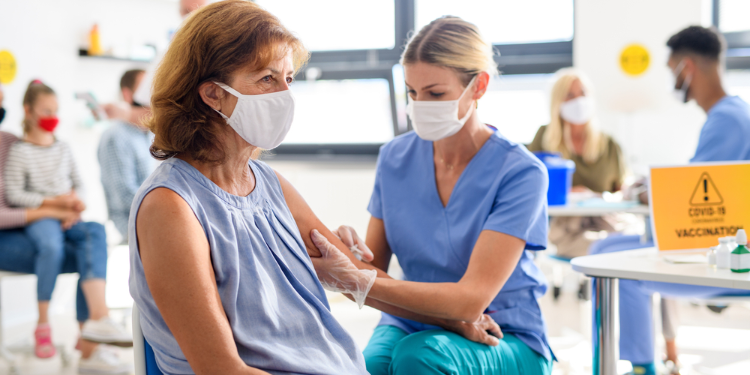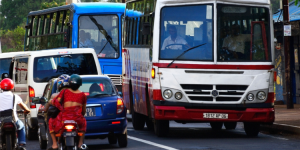
COVID-19 vaccination has become a very sensitive issue. Should it become mandatory? Except in some countries and under certain conditions, vaccination is optional. Still, many people believe that vaccination could be the key to a return to normalcy.
Regardless of the country we live in today, we all dream of a world where we don't have to cover our faces with a mask, without having to sanitise our hands all day long, but most importantly, to be able to shake our hands again and hug our loved ones. Currently, that sounds like a myth if we consider how quickly the virus keeps on spreading worldwide and the discovery of new variants. However, most countries are massively investing in vaccination in order to achieve herd immunity.
Should the vaccine be made compulsory?
To date, very few countries have dared to make COVID-19 vaccination compulsory, keeping in mind that large proportions of their populations are either against vaccination or prefer to have the choice. Besides, the progress of vaccination campaigns is relatively slow in several countries due to the unavailability of vaccines and delayed deliveries. Obviously, for most people, COVID-19 vaccination is a matter of choice. In virtually every country, vulnerable people and groups, such as the elderly, frontline workers and those working in essential services, etc., have been prioritised.
In the UK, for example, all healthcare workers have to be immunised against COVID-19. In Italy also, since April 10, vaccination is mandatory for all caregivers, as well as pharmacists who are regularly in contact with the public. Pakistan is considering making vaccination compulsory for all public and private sector employees. In Brazil, although vaccination is not compulsory, anyone who refuses to be vaccinated risks penalties.
Mauritius is another interesting case. Vaccination has been made compulsory for members of certain professions, including healthcare and education. The Quarantine Act has even been amended to include these new regulations. Anyone who refuses to be vaccinated, except those who can prove through a medical certificate issued by a public doctor that they cannot be vaccinated against COVID-19 for medical reasons, are required to produce a negative PCR test every week. Besides, for access to any educational establishment, including nurseries, as well as health centre, except for those who need health care, the COVID-19 vaccination certificate will be mandatory from June 21. For offenders, there's a heavy fine and a 5-years prison sentence. Mauritian is thus looking to achieve herd immunity by September 2021.
Perks of getting the jab
You may not have thought about the many benefits of getting the jab. It's not just about protecting yourself and your family members. Keep in mind that COVID-19 is a virus that has already affected 175 million people worldwide and caused more than 3.7 million deaths. So even if you're afraid of the side effects, the benefits are much more important.
Scientists and governments firmly believe that mass vaccination could be the key to a quicker return to normalcy. In the United States, for example, people who have already been fully inoculated are no longer required to wear a mask in public places, whether indoors or outdoors, which is already a huge relief! However, the wearing of a mask remains mandatory in public transport, on flight, at the airport and at train stations. In other countries, wearing a mask and social distancing in the presence of other vaccinated people is no longer required. Once you have been vaccinated, you can also look after someone who has been infected with COVID-19.
For those who wish to travel or relocate abroad, immunisation may be the answer to their issues. Spain, for example, like several countries, has also reopened its borders to vaccinated tourists. As many countries reopen their international borders, you are more likely to find a flight to the destination of your choice and to be exempted from quarantine and self-isolation by presenting your COVID-19 vaccination certificate. Haven't you been desperate for those family reunions and a change of atmosphere for a year and a half?
In some countries, mainly in Europe, proof of vaccination is required to participate in major events hosting more than 1,000 people, such as concerts, sports competitions, etc. Besides, several European countries have started to lift their health restrictions as summer and the tourist season begin. This should allow people to breathe in the new normal.
However, make sure that the vaccine you received in your host country or home country is recognised in the country you are planning to travel to. For example, people who have received Covaxin, Covishield and Sinopharm jabs are not allowed to travel to Europe. For now, only four vaccines have been approved by the European Medicines Agency, namely Pfizer-BioNTech, Moderna, AstraZeneca (Vaxzevria) and Johnson & Johnson (Janssen) vaccines. Other vaccines, including Sputnik V (Russia), CureVac (Germany), Sanofi-GSK, Novavax and CoronaVac (developed in China by Sinovac), are still under evaluation.
Are you ready to get the jab?
Opinions differ regarding the vaccine. But the trend is changing with the latest developments, including the introduction of the European Health Passport and the vaccine passport in several countries outside Europe. The World Economic Forum recently carried out a survey with the collaboration of Ipsos in fifteen countries. According to the results, the British seem to be keener for getting inoculated against COVID-19 as soon as vaccines become available. The majority of respondents in Brazil, China, Mexico, as well as Italy, Spain, Canada and South Korea, are also very likely to get vaccinated. France, meanwhile, is among the countries with an average interest in COVID-19 vaccination.
 ... ... In between, I'll continue to keep an eye on the VAERS data evolution (47% of all Deaths reported following any vaccine since 1990 happened on the 6 first months of 2021... Check by yourself!)
... ... In between, I'll continue to keep an eye on the VAERS data evolution (47% of all Deaths reported following any vaccine since 1990 happened on the 6 first months of 2021... Check by yourself!)




















